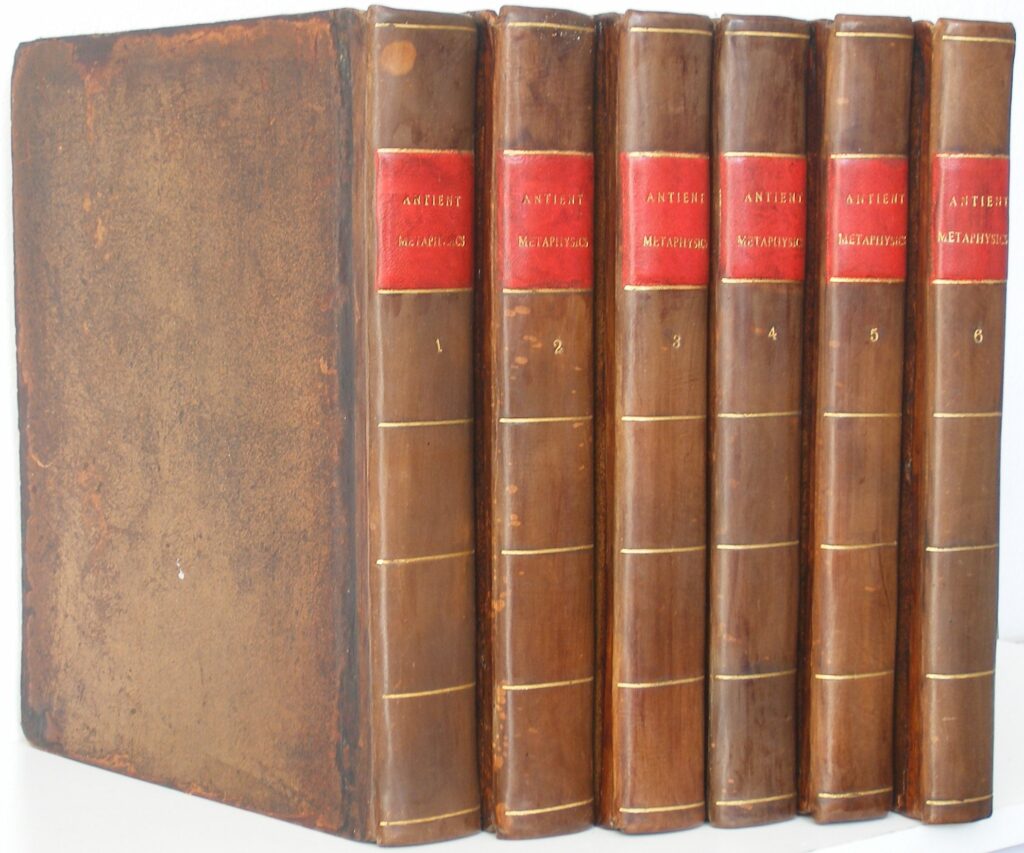‘One of the strangest and most intriguing products of the Scottish Enlightenment’
First edition of Monboddo’s epic work, published over a twenty-year period and very seldom found complete in all six volumes.
‘Why ought one read it? First, the very massiveness of Antient Metaphysics allowed Monboddo to range over countless points of interest, from the origins of human society and culture, to accounts of wild children, to arguments against Hume’s racism to erudite defences of Mind against Priestleyan materialism and Lockean and Humean empiricism. It also allowed him to interrelate many points from many different perspectives and show how they form a complex system, one of the main goals of his holistic philosophy (Vol. VI, 329–30).
Antient Metaphysics is also a work that is indicative of a number of strains in British philosophy, despite the pleasure which Monboddo clearly took in writing against the grain. Monboddo can be viewed as a reactionary Rousseauian in distinction from the conservative Rousseauianism found in the works of John Gregory and Lord Kames. Although Monboddo rarely mentioned Rousseau, his fascination with orangutans as the original men, and his general pessimism about the decline of man from his initial state, have a Rousseauian imprint. But, of course, there are drastic divergences from Rousseau, which signal a second set of influences. Monboddo emphasized that man’s ideal condition was not as a happy orangutan, but rather a state combining Athenian wisdom (not Spartan discipline) and Egyptian politics, drawing on Neoplatonic intellectualism and monarchy in a way entirely foreign to Rousseau. Monboddo’s variety of Neoplatonism, which he called ‘Antient Theism’, had affinities with the philosophy of Cudworth, an author whom he greatly admired Vol. I, ‘Preface’, iii) and more broadly to Cambridge Platonism (although Monboddo probably concocted much on his own). It also had great affinities with Shaftesbury and Shaftesbury’s nephew James Harris (who was Monboddo’s friend and mentor). Monboddo opposed his ‘Antient Theism’ to ‘modern theism’, which he associated in the first volume of Antient Metaphysics with the philosophies of Descartes and Newton. Descartes gradually fell away, to be replaced by Priestley in the second volume of Antient Metaphysics, but Newton was an obsession of Monboddo’s, from the work’s opening pages to its concluding paragraphs, through many books, chapters, and appendices’ (Aaron Garrett, ‘Introduction’ to the Thoemmes Press facsimile reprint, 2003).

